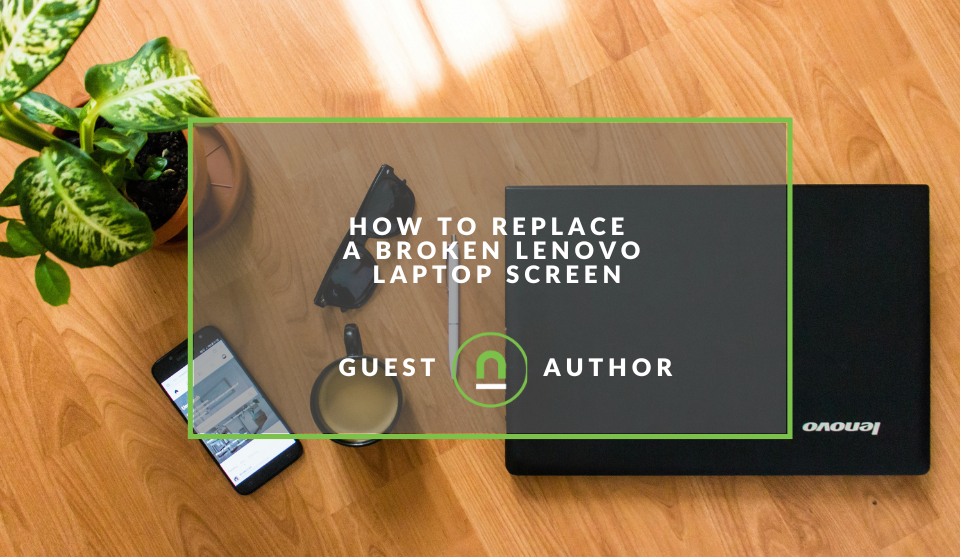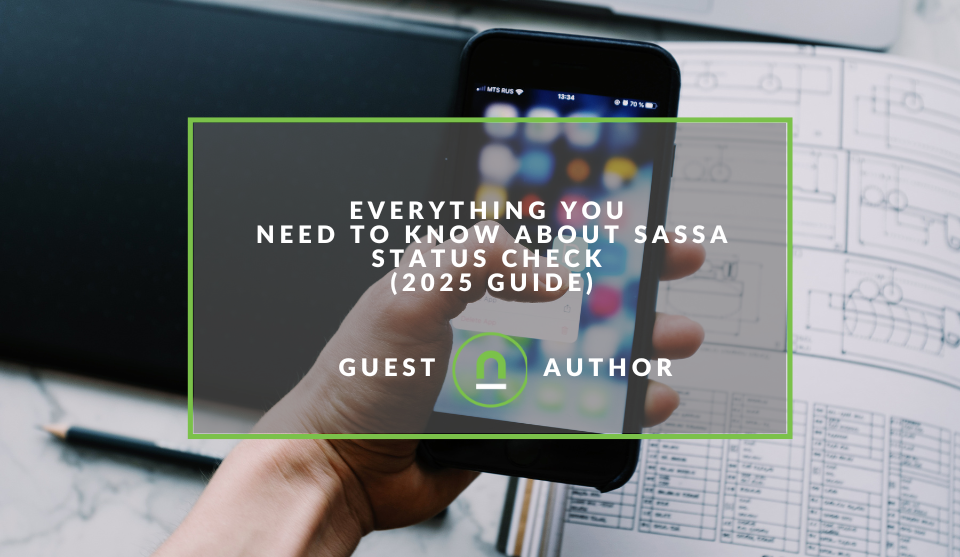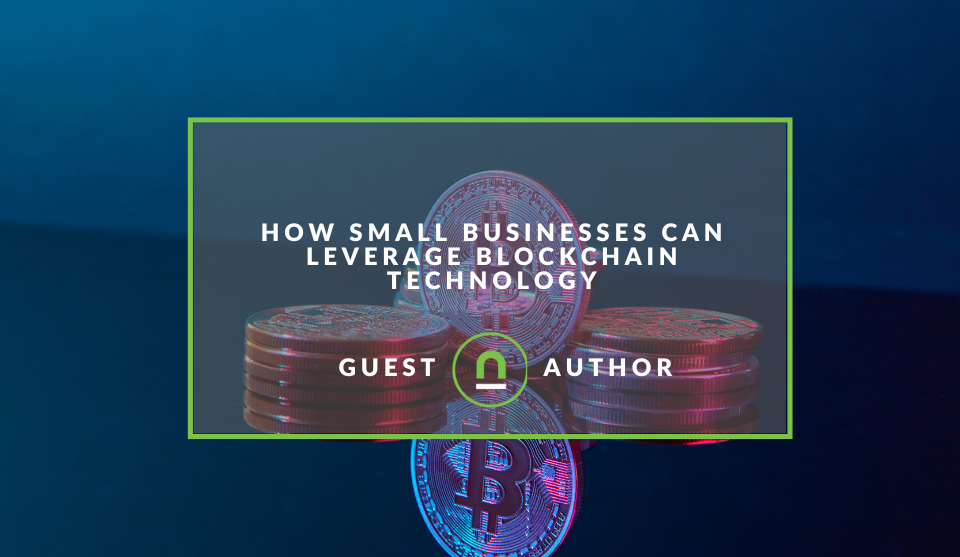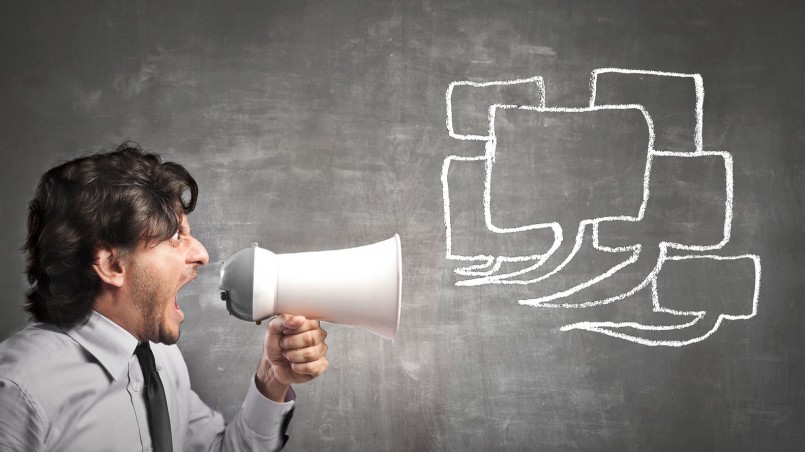Recent posts

Geek Chic
How to Replace A Broken Lenovo Laptop Screen
24 April 2025

Money Talks
Everything You Need to Know About SASSA Status Check
13 April 2025

Mind, Body & Soul
The Genetic Diversity of Cannabis Seeds
12 April 2025

Money Talks
How Small Businesses Can Leverage Blockchain Technology
02 April 2025
Popular posts
Extravaganza
Trending Music Hashtags To Get Your Posts Noticed
24 August 2018
Geek Chic
How To Fix iPhone/iPad Only Charging In Certain Positions
05 July 2020
Extravaganza
Trending Wedding Hashtags To Get Your Posts Noticed
18 September 2018
Money Talks
How To Find Coupons & Vouchers Online In South Africa
28 March 2019
Are Negative Brand Associations Always a Bad Thing?
16 March 2017 | 0 comments | Posted by Kirby Gordon in Industry Experts
Kirby Gordon, VP of Sales and Distribution at FlySafair, gives us some insight on how to handle negative mentions and press for your brand. All publicity can indeed be good publicity, it is how the brand addresses the situation that makes the difference.
As marketers, we are often very sensitive to the spaces and mentions that our brands are exposed to. We’re always very careful to ensure that we cast our brands in the best light, steer away from associations with bad news and keep our Social Media feeds as clean as we possibly can. But the question begs: “Is bad news, always bad news?”
Bad news sells
Browse over to News24 and tell us how many good news stories you find. Chances are that there aren’t that many. The reason for that is pretty clear: bad news, like sex, sells. And for the record, bad news involving sex really sells! Ask Donald Trump, Silvio Berlusconi, or Bill Cosby. I digress. The truth is that people tend to engage for longer, and are more likely to spread, bad news, or at least news that is perceived as
Take Comair as an example. In April of 2016, Comair Limited, which operates low-cost airline Kulula.com and the domestic network for British Airways, hit upon a bad patch that resulted in some industrial strike action on the part of their ground handling staff at airports around the country.
South African media tends to love a strike or protest, story and the news outlets grabbed the narrative and ran with it far and wide. Fortunately, Comair had both a great recovery plan and a great public relations team at their disposal, who set into action immediately. They took to the airports to help their customers board flights and communicated actively and openly with the media about how they were managing to keep flights on time despite the strike action. In fact, they actually had a better track record of keeping flights on time during that strike period than they did outside of that strike period.
The result? Pretty much every headline read something along the lines of “Comair Flights all on time despite Strike Action”. Now is that a bad headline? Sure there are better ones, but that one is actually pretty
“I’ll be calling Jon Robbie and taking my case to Social Media”
When service goes wrong, which unfortunately it’s bound to do at some point, angry customers love to make threats about destroying your company through reputational damage. These keyboard warriors take to Twitter, with their egg-pic avatars and 9 followers, to single-handedly sink your brand.
If you’re dealing with the public, it’s an inevitability that you’re going to experience this at some point, but the truth is that there’s generally a golden opportunity that’s hidden in these moments.
The opportunity is usually one of two things: a chance to make it right, or a chance to explain yourself. Most companies are not unreasonable, and if something has gone wrong there’s a good chance that there’s a good reason, or a chance to make it right. And who doesn’t love a turn-around story? There’s a reason the Pretty Woman is still one of the most popular movies of all time.
But what if things go really wrong?
The scenarios mentioned above are examples of bad associations, but there are circumstances where things can go fundamentally wrong. Recent examples would be stories like the controversy surrounding the likes of Ford Kuga and Samsung phones spontaneously combusting. These are pretty tough scenarios and the stock prices of both of these companies will attest to this. But there is an argument that the effect of this bad news can depend on the life stage of the brand in question.
Mature brands like Ford and Samsung tend to have everything to lose, so bad news for them is likely to be more damaging than anything else, but for a less mature brand, bad news can arguably be a good thing, in the short run. Let’s think about Uber as an example. Uber has been the centre of plenty of scandals in the past few years. There have been plenty of stories around conflict with local taxi associations and loads of news around reported incidents taking place where drivers, or people posing as drivers, have taken advantage of riders.
A Google Trends search will reveal that none of these headlines has done anything but increase searches for Uber contributing to their massive growth. It’s only recent events surrounding the Trump-related scandals that have actually seen interest in Uber begin to decline. The important thing to note is that these kinds of scandals can end up being quite polarising. The news may put your brand name on the lips of plenty of new people quite quickly, but there are some people who you will actively be putting off your brand, and if your need is to win them over at a later stage, you could be facing a massive uphill struggle.
A word of caution
There are plenty of brands out there that have made their names by virtue of being edgy and chasing scandal, but it is something that should be approached with caution. Scandals like these discussed not only have an impact in the public sphere but also on the very important internal aspects of a brand, like your company culture and your employee brand, which will affect the kinds of talent you might be able to attract to your business. In sum, bad news can be good for you, but it needs to be approached with caution because
Kirby Gordon VP: Sales and Distribution of FlySafair
About the author
Kirby Gordon is a marketing know-it-all based in Johannesburg. He heads up marketing for FlySafair, a new low-cost airline that’s kicking ass and taking names in the South African domestic market. Previous experience includes marketing for Kalahari.com, an online general retailer, and Sanlam, a massive financial services company.
You might also like
The Role of Customer Service in Selecting a Forex Broker
29 March 2025
Posted by Cornelia Ekong in Money Talks
Discover why excellent customer service is crucial when choosing a Forex broker, and learn how to evaluate support quality before committing your cap...
Read moreMastering Personalization in Digital Marketing
31 March 2025
Posted by Željka Ristic in Industry Experts
We look at the best content marketing tools to boost engagement and growth and build sustainable marketing campaigns that drive users to take action
Read more{{comment.sUserName}}
{{comment.iDayLastEdit}} day ago
{{comment.iDayLastEdit}} days ago
 {{blogcategory.sCategoryName}}
{{blogcategory.sCategoryName}}


